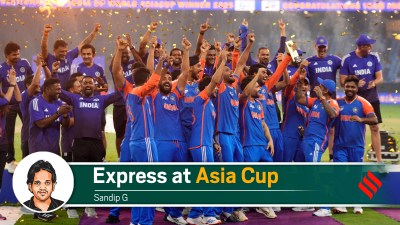Rebels at his door,Nasheed dialled India for military help
With protests that started off,Nasheeds national security adviser Amin Faisal dialled New Delhi frantically.
As hundreds of protesters surrounded the office of then President Mohamed Nasheed,desperate calls were made to India for military assistance. But India took a considered view not to get involved in what it saw as an internal issue of the Maldives.
With protests that started off on religious grounds reaching a crescendo on Tuesday morning Nasheeds national security adviser Amin Faisal dialled New Delhi frantically.
Faisal and some other senior officials were making calls from the presidents office at about 11 am on Tuesday,asking about the possibility of Indian military assistance to put down the coup, Paul Robets,adviser to the former president,said.
Roberts was in Nasheeds office as the situation unfolded on Tuesday.
The Indian side,however,saw no case for intervention like in 1988 when troops were sent out to put down an insurgency by Tamil rebels from Sri Lanka,official sources said. New Delhis view was that such action would be perceived as a transgression into the sovereignty of the Maldives.
However,officials from the Indian high commission were in touch with both sides in the conflict,and were instrumental in ensuring a peaceful resolution,the sources said. The situation was resolved at the political level and within the framework of the Maldivian constitution. There was no case for intervention, a top source said.
India took the considered view that its friendship with Nasheed did not take precedence over its goodwill in the islands and its relationship with the people of the Maldives. New Delhi assured the new president,Mohammed Waheed Hassan Manik,of its support,and Prime Minister Manmohan Singh wrote him a letter to say Indias good relations with the Maldives would continue.





- 01
- 02
- 03
- 04
- 05


























